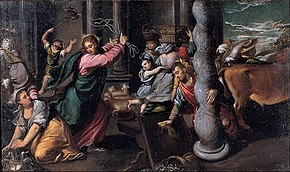We Christians can sometimes be a little too preoccupied with sin, especially other people’s sin. We tend to give ourselves a lot of grace. When I sin, it’s because I’m human. When others sin, well, God needs to sort them out, and they need to repent. We want mercy for ourselves and judgement for everyone else!
We also have favourite sins and others that we ignore. For example, the sin of gluttony is repeatedly mentioned in the Bible but rarely mentioned in church. I’ve been in countless green rooms at Christian’s conferences over the years, where lots of XXL evangelists fill their huge frames before preaching about the sins of others.
But one sin we rarely hear about is the sin of discrimination. It’s something I’ve studied as we’ve formed Bayside Church’s Inclusion Statement. I confess I was surprised at the multitude of Bible verses that address this sin.
First-Century Discrimination
First-century Jews considered non-Jews (gentiles) as unclean. A Jew would not enter a gentile’s home or eat with them as either act would lead to ceremonial uncleanness. Imagine Peter’s horror when he was praying on the roof of the house one day and experienced a vision from God. In the dream, he saw a sheet suspended by the corners and crammed with all kinds of unclean animals that a Jew would never eat. A voice told him, “Get up, Peter. Kill and eat.” Peter’s response dripped with spiritual pride, “I have never eaten anything impure or unclean.”
What’s fascinating in this story is that Peter was staying in the home of Simon, the tanner. Simon was in the business of treating animal hides to produce leather, a trade that was considered unclean by the Jews. Through this vision, God dealt with Peter’s hypocrisy and discrimination, two things that made Peter’s heart impure.
The Divine Reply
God’s response is stunning, “Do not call anything impure that God has made clean” (Acts 10:15). The Spirit was moving, and the newly-formed church would need to welcome “unclean” gentiles into their communities. It took decades for the Jewish church to wrap its heart around this truth. Much of Paul’s letter-writing ministry was aimed at the pushback by Jewish Christian leaders against the acceptance of gentiles in the church.
Over the centuries, the Holy Spirit has placed a finger on various other aspects of “Christian” discrimination. Jesus’ people have been guilty of racial bias in supporting slavery and treating people of colour as second-class citizens. We have shown prejudice towards women, single parents, illegitimate children, mixed-race couples, the separated, divorced, and remarried. For decades the church has discriminated against LGBTIQ+ people.
Sin of Discrimination
All this discrimination has been justified by quoting Bible verses, but rarely has the sin of discrimination been called out. And yet, the Bible has so much to say about it. James names it bluntly, as he does so well, “My brothers and sisters, believers in our glorious Lord Jesus Christ must not show favouritism” (James 2:1).
Favouritism is “the fault of one who when called on to requite or to give judgment has respect to the outward circumstances of men and not to their intrinsic merits.” It’s forming an opinion of someone based on externals like skin colour, clothing, mannerisms, wealth or lack thereof, and either accepting or rejecting that person. Note what James says, “believers in … Jesus Christ must not show favouritism.” A few verses later, he asks, “have you not discriminated among yourselves and become judges with evil thoughts?” And then verse nine, “But if you show favouritism, you sin ….” (James 2:4). The sin of discrimination!
Be Like God!
God doesn’t discriminate, and neither should his people (Romans 2:11, 10:12). “To show partiality in judging is not good” (Proverbs 24:23). Christians are required to follow God’s Word “without partiality, and to do nothing out of favouritism.” (1 Tim 5:21). We should treat everyone the same because “there is neither Jew nor Greek, there is neither slave nor free, there is no male and female, for you are all one in Christ Jesus“ (Galatians 3:28).
The apostle Paul said that the Royal Law, “Love your neighbour as yourself”, is the fulfilment of the law because “Love does not harm a neighbour.” Jesus taught what is now referred to as the golden rule, “So in everything, do to others what you would have them do to you, for this sums up the Law and the Prophets.” Notice that the Royal Law AND the Golden Rule both fulfil AND summarise the entire Bible. That’s how Christians should live, behave, and interact with others. There is no room for discrimination.
Ready to Change?
The church has not always treated others in the way we would like to be treated. I have not always got this right either. I apologise for my missteps. I aim to do better. So does our church.
With that in mind, we have crafted an Inclusion Statement as a public declaration that all people will be treated equally by our church community:
At Bayside Church, we believe that every person is created in God’s image. All are equally worthy of respect, dignity, and love, regardless of gender, sexuality, age, ability, race, or ethnicity.
Everyone is invited, welcomed, and supported to grow in their relationship with God and each other. Everyone is encouraged to use their gifts and abilities to serve God and others.
At Bayside Church, we are committed to creating a safe space for all – we do this through clear policies and pathways so that everyone can feel safe and nurtured.
At Bayside Church, we courageously love and empower people to become like Jesus.
Of course, it’s easy to write and read this. The challenge comes as together we seek to live it out as a reality and no longer commit the sin of discrimination.







